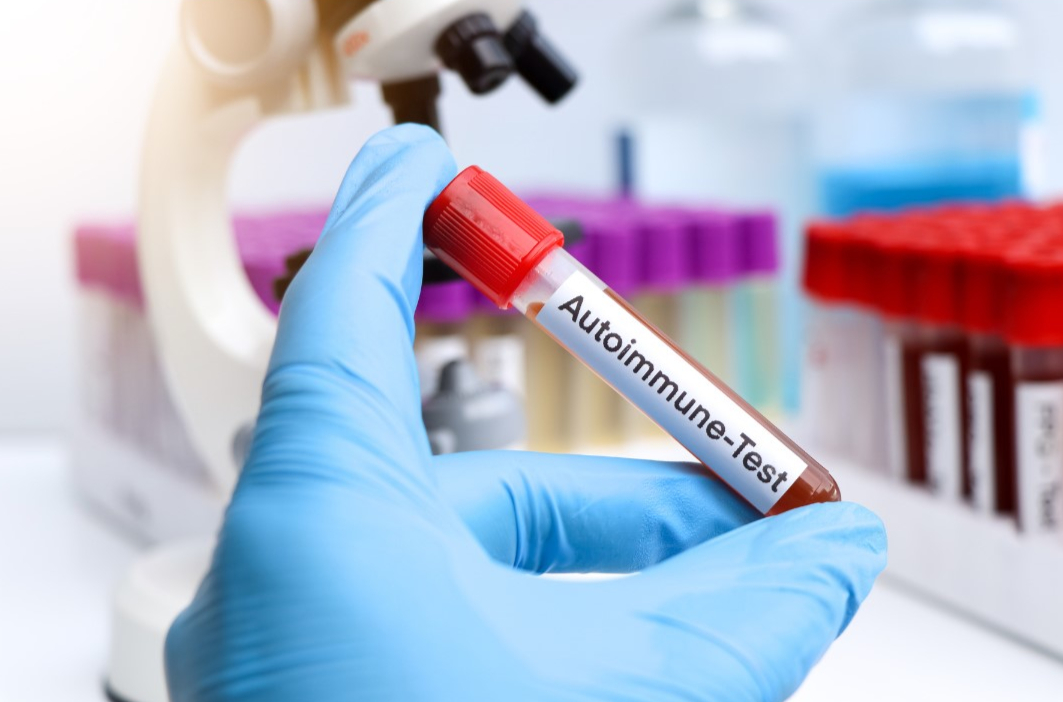What Are the Early Signs of Autoimmune Disorders?

1. Chronic Fatigue and Unexplained Exhaustion
One of the most common and often overlooked early signs of an autoimmune disorder is chronic fatigue. It’s important to note that this isn’t just the normal tiredness you might feel after a long day. Autoimmune-related fatigue can leave you feeling exhausted despite a full night’s sleep and can affect your ability to carry out everyday activities.
Why it happens: Many autoimmune diseases, such as lupus, rheumatoid arthritis, and multiple sclerosis, can interfere with energy levels due to inflammation, the immune response, and the body’s constant “fight” against itself. If you find yourself unusually tired for weeks or months, it might be time to look into possible autoimmune conditions.
2. Joint Pain, Swelling, and Stiffness
Pain and swelling in the joints, especially in the morning, can be an early sign of autoimmune diseases like rheumatoid arthritis (RA) or psoriatic arthritis. The inflammation caused by an overactive immune system can lead to pain, stiffness, and swelling in the joints, particularly in the wrists, knees, fingers, and toes.
Why it happens: When the immune system attacks the joints, it causes inflammation that can lead to discomfort and decreased mobility. Early intervention is crucial to prevent long-term joint damage and other complications.
3. Skin Changes and Rashes
Unexplained skin changes, such as rashes, blisters, or discoloration, can be a sign of autoimmune disorders like lupus, scleroderma, or dermatomyositis. In lupus, for example, the butterfly-shaped rash across the cheeks and nose is a classic symptom of the disease. Other autoimmune conditions can cause skin lesions, redness, or dryness.
Why it happens: Autoimmune diseases often cause the immune system to attack not only internal organs but also the skin, leading to rashes and other dermatological changes. If you notice persistent skin changes that don’t seem to have a clear cause, it may be worth speaking with your healthcare provider.

4. Digestive Issues (Bloating, Diarrhea, Constipation)
Gastrointestinal (GI) symptoms are common in many autoimmune diseases, especially those that affect the digestive system, like Celiac disease, Crohn’s disease, and ulcerative colitis. If you experience persistent bloating, diarrhea, constipation, or abdominal pain, it could be an indication of an autoimmune condition.
Why it happens: Autoimmune diseases targeting the gut can cause inflammation in the intestines, which can interfere with digestion and lead to gastrointestinal distress. Additionally, the immune system’s inflammatory response can affect the gut lining and alter nutrient absorption, which may worsen symptoms over time.
5. Frequent Infections or Illnesses
6. Hair Loss and Thinning
Unexplained hair loss or thinning can be an early sign of several autoimmune diseases, including alopecia areata and lupus. In alopecia areata, the immune system attacks hair follicles, resulting in round patches of hair loss. In lupus, hair thinning or loss can occur as a result of inflammation or due to medications used to manage the disease.
Why it happens: Hair loss due to autoimmune disease often results from inflammation in the scalp or from the body’s immune response, which targets hair follicles. If you notice thinning hair, patches of hair loss, or significant changes in your hair texture, it may be time to consult a healthcare provider.
7. Dry Eyes and Mouth (Sicca Symptoms)
Dryness in the eyes and mouth, also known as sicca symptoms, can be an early indicator of autoimmune conditions like Sjogren’s syndrome. People with Sjogren’s syndrome experience dryness in the eyes, mouth, and other mucous membranes, often accompanied by difficulty swallowing or speaking.
Why it happens: The immune system attacks the moisture-producing glands in the body, leading to reduced tear and saliva production. If you experience constant dry eyes, dry mouth, or difficulty swallowing, it’s important to consult with a healthcare provider for a proper diagnosis.

8. Unexplained Weight Changes
Unintentional weight loss or weight gain, particularly if it occurs without changes in your diet or exercise habits, can be a sign of autoimmune conditions like Graves’ disease (hyperthyroidism), Hashimoto’s thyroiditis (hypothyroidism), or type 1 diabetes. These conditions can affect metabolism and hormone levels, leading to fluctuations in weight.
Why it happens: Autoimmune disorders can affect various organs, including the thyroid, pancreas, and adrenal glands, leading to hormone imbalances that influence weight. If you notice unexpected weight changes, it’s important to seek professional evaluation to determine if an autoimmune disorder is at play.
9. Mood Changes and Mental Health Symptoms
Autoimmune diseases can sometimes impact mental health, leading to symptoms like depression, anxiety, or brain fog. Conditions such as multiple sclerosis, Hashimoto’s thyroiditis, and lupus can affect the central nervous system, leading to mood changes or cognitive difficulties.
Why it happens: Inflammation caused by autoimmune diseases can affect the brain, leading to symptoms of depression, anxiety, and memory problems. Hormonal imbalances or chronic pain from autoimmune diseases can also contribute to mental health struggles.
How NovaLab Corp Can Help
At NovaLab Corp in Wayne, NJ, we specialize in diagnostic testing that can help identify autoimmune disorders early. Whether you’re dealing with unexplained symptoms or you suspect you might be at risk for an autoimmune disease, we offer comprehensive lab testing to support your health.
Our experienced team can help you navigate your symptoms, provide necessary testing, and guide you toward the proper treatment and management of any autoimmune conditions.
Don’t wait for symptoms to worsen. Early diagnosis and intervention can significantly improve outcomes and help you manage the condition more effectively.
Schedule an Appointment Today
If you’re noticing any of these early signs of autoimmune disorders or simply want to take a proactive approach to your health, contact NovaLab Corp today to schedule a consultation. Our team is here to help you with early detection, so you can stay ahead of potential health challenges and live your healthiest life.
